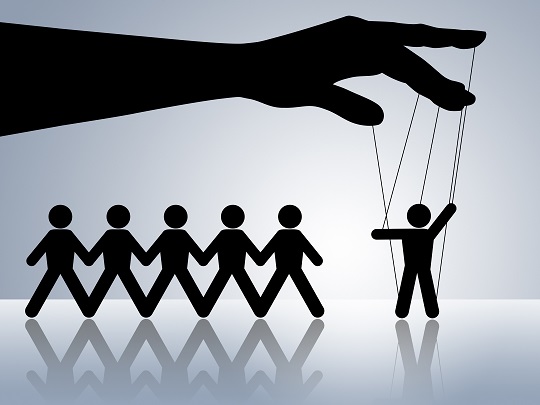When the Internet of Things Orchestrates Our Lives

What do your robots think of you? What are they saying when you’re not around? What will they decide to do? It sounds like the setup for a sci-fi movie, but it’s not. Welcome to the Internet of Things: In a world of smart devices, questions like these – while a bit dramatic – are also surprisingly realistic.
Vivek Wadhwa asked as much in a Washington Post article about the personal and economic impacts of the IoT. As our devices become more sophisticated, their sensors more sensitive, the exchange of data more complex, how will they affect us? One possibility is that they’ll improve our lives, making our use of energy more efficient, enhancing our health, tightening our security and adding value to our lifestyles. Another possibility is that they’ll spy on us and manipulate our habits.
As with most things, the truth is somewhere in between. The IoT can certainly accomplish everything on that first list. But remember, it’s not altruism that’s driving the ship. The companies that bring us IoT benefits “want to learn all they can about us so that they can market more products and services to us – and sell our data to others,” Wadhwa said.
There’s the spying side of it. As for the manipulation, it’s not unrealistic to suppose that, given the opportunity, we’d be happy to leverage our devices to prompt us to pick up some milk when we’re running low, buy someone a gift on their birthday or even take the right meds on the right day.
Would we want them to orchestrate every last detail of our lives? Of course not. “I am not looking forward to having my bathroom scale tell my refrigerator not to order any more cheesecake,” Wadhwa quipped, “but know that it is an amazing – and scary – future that we are rapidly heading into.” Whether that particular scenario ever comes to pass, it would certainly be part of the sci-fi movie.
Still, moving beyond all the hype (and the hypotheticals), the reality is that at this point, the IoT will almost certainly bring a flood of change that affects us on every level. Last year, McKinsey Global Institute forecasted an economic IoT impact of $3.9 to $11.1 trillion by the year 2025. When everything is connected, everything will shift – from how we monitor ships at sea to when we choose to throw away the toaster.
Some of these changes will inevitably bear an impact on companies, too, even or especially those that are reluctant to adapt their business models. But they’ll have to, Wadhwa said. Companies that aren’t willing to do so will very likely be supplanted by start-ups that are.
Insurance is a conservative industry, as we all know. Insurers have conventionally been slow to change. The tide, however, is on its way in. As the IoT makes its way throughout the economy and the world, insurers must adopt a forward-leaning stance. In that regard, we can help.
To find out how Silvervine is helping insurers prepare for the future, download our “Losing Your Legacy” report here.
